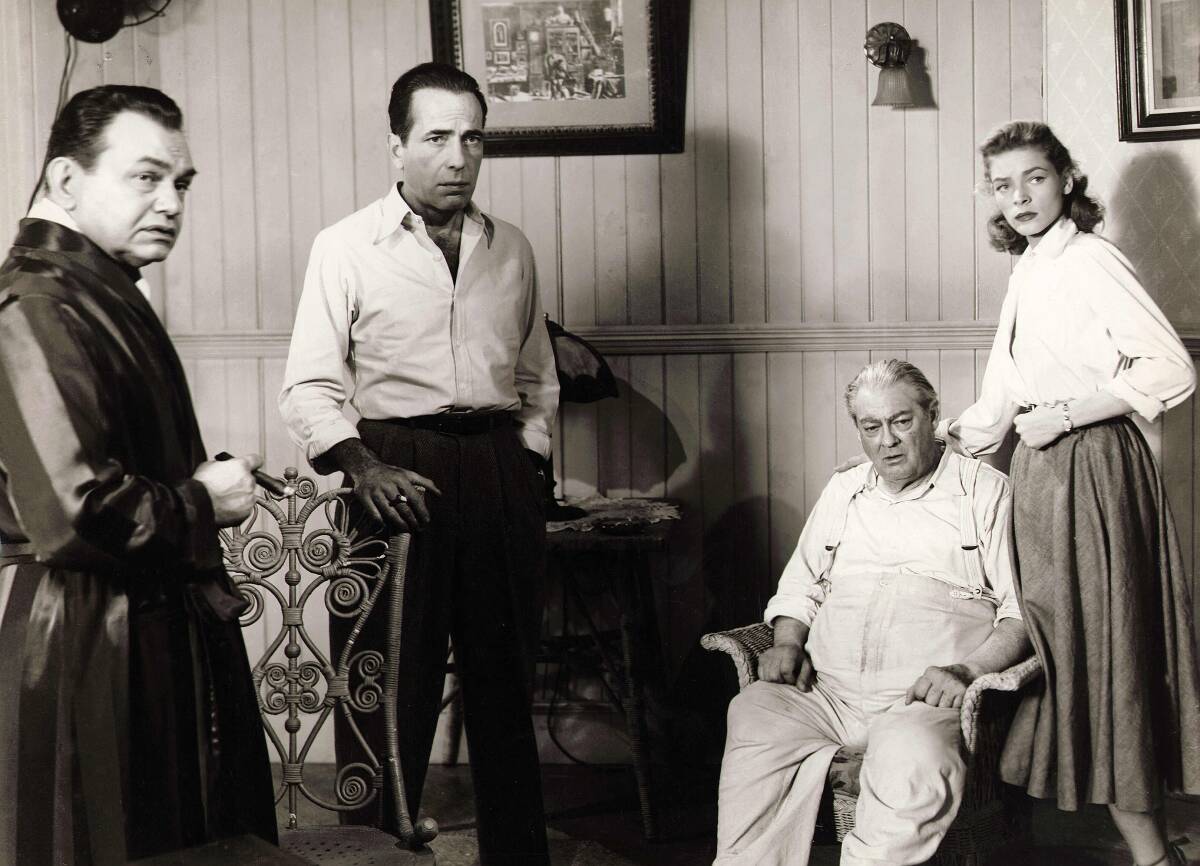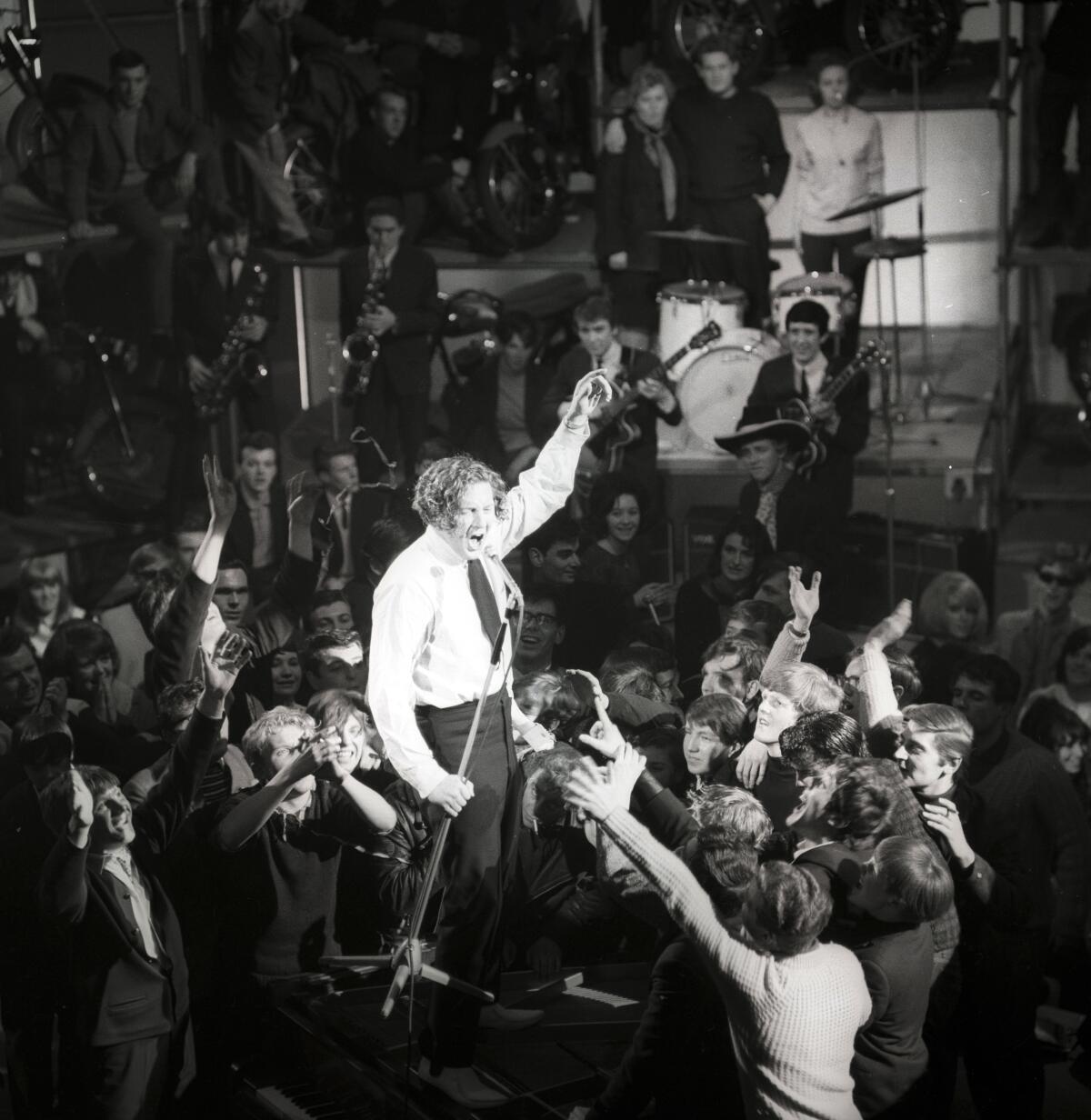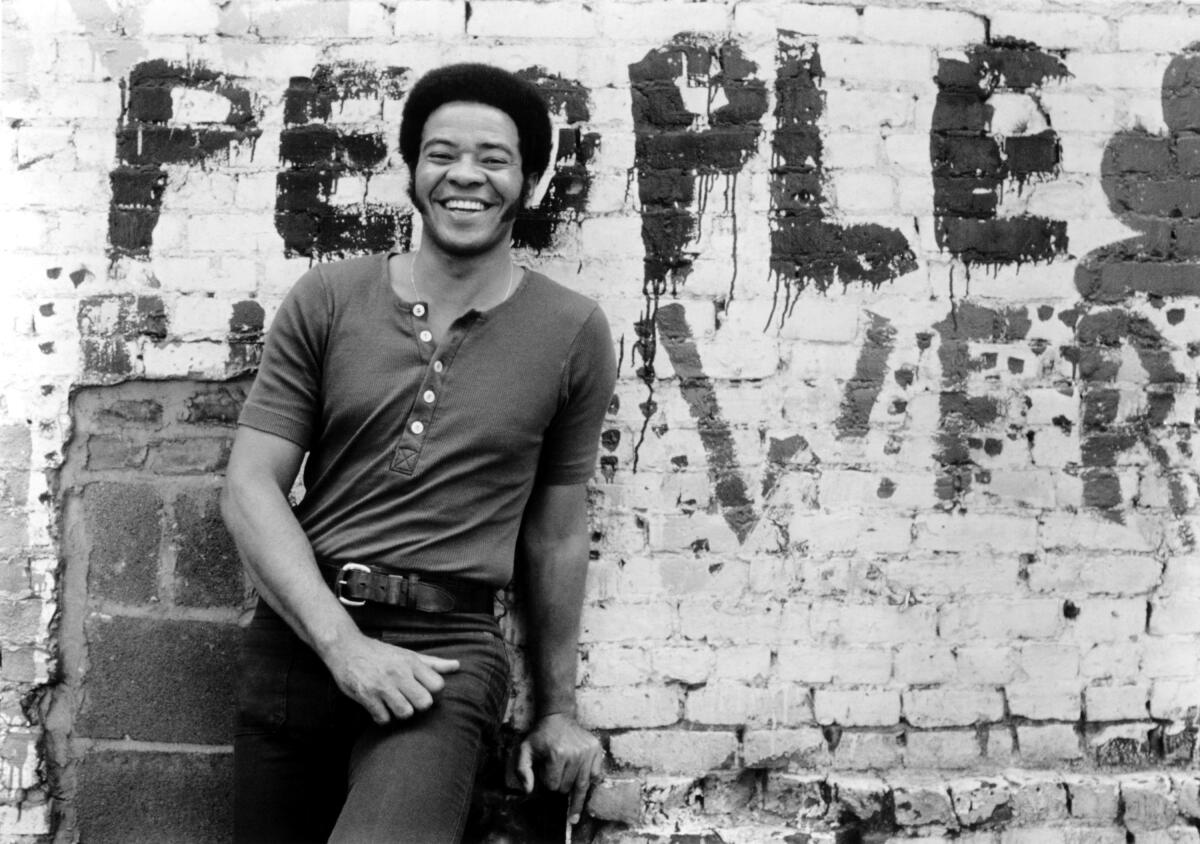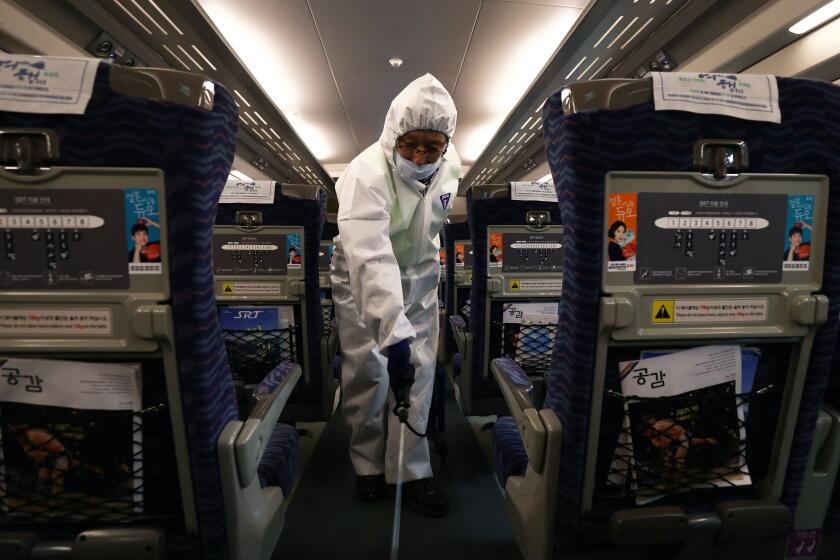Mom, 13 cats, Bogart, a restless dog and no WiFi: Rick Bragg self-isolates in Alabama
- Share via
The Times asked authors to track what they do in isolation. Pulitzer Prize-winning journalist and author Rick Bragg reports from Alabama, where Larry McMurtry, John Prine and Turner Movie Classics keep him company, along with his mother, 13 cats and an Australian shepherd — but no WiFi. There were no dates provided because time doesn’t matter.
The old people down here say this is the end of the world, but I don’t think so. In a great, lingering sadness, this sorry ol’ world will just keep wobbling on.
Still, if the end is nigh, I don’t want to waste the time I have left. So I read some Hemingway, and some Dickens, and the words of an old cowboy called Sam the Lion, from Larry McMurtry’s “The Last Picture Show.”
… being crazy about a woman like her is always the right thing to do …
I watched “Red River” on TCM, and “Lawrence of Arabia,” and “Key Largo.” I heard Humphrey Bogart, the drifting World War II veteran, tell innkeeper Lionel Barrymore of his son’s faraway grave. I listened to Sam Cooke, and Patsy Cline, and the Allman Brothers. And I dialed up some honky-tonk piano, from Jerry Lee Lewis, ‘cause I don’t reckon the world will end till Jerry Lee says so.
Odd, that in this time of real death, surrounded by so much struggle, there is, here at the end of a long driveway in the foothills of Alabama, so much time to kill.

We are lucky here, at the end of this road. On television I see overcrowded hospitals and brave men and women risk their own lives inside inadequate equipment, and my heart breaks. I hear smart people plead for help in hospitals where patients die in the hallways.
Governments and health officials around the world are trying to mitigate the spread of the coronavirus outbreak.
Tight spaces, crowds, physical contact, are all so dangerous now, so I do as I am told. I sit on the porch in the middle of 40 acres and watch the dog, an Australian shepherd, harangue a snooty cat for the better part of a quarter mile, before the cat, without slowing down, scales a tall pine. It looks like a cartoon. The dog watches the cat awhile, disappointed, then retraces his steps through the mountain pasture, making a detour to harass a mule standing belly deep in the tall spring grass. Then he lopes up the hill to the porch, for pets. Through the screen door, I can hear my 83-year-old mother singing about gathering at the river.
Space is not a problem, here.
But space, and time, will make you crazy.
There is no internet in this corner of Calhoun County, no cell reception, unless the wind blows just the right way and the canopy of trees parts for a moment or two, to let a signal inside.
It’s just me and my mom and the creaking pines, and the dog, 13 cats, the livestock, and CNN … and the fear, of course, even here, that the virus will somehow find its way up the long driveway.

More and more, I catch myself talking to the dog. He is a fine dog and a smart dog but he is not a magic dog.
“Who’s a good boy?” I ask.
Nothing.
“Who’s the best boy?”
Silence.
“Who’s the best boy in the whole wide world?”
He thumps his tail on the porch, once, twice, three times.
“Well, OK,” I tell him, and go get him a treat.
There is no need to be stingy at the end of the world. He gets cocktail weenies, now, for a snack. I give him two, and because that makes him happy I give him six more. He has put on six pounds in the end times.
I worry a little that some passersby will see me talking to my dog, but there are no passersby in the time of the pandemic. There is only the calm, shameful in a way I cannot explain, in the middle of it all.
“It’s a sign,” my mother said.
Plagues will descend. Governments will fall.
“Then I will refrain from paying the water bill,” I said, “and put off de-worming the dog.”
The dog wags his tail; he likes to be in the conversation.
“Go chase another cat,” I tell him, and he takes off like a bullet.
Authors like Lionel Shriver, Alexander McCall Smith, Laura Lippman and Steph Cha are under coronavirus quarantine too. Here’s what they’re reading.
The first few weeks of isolation went by quickly. I was finishing a collection of essays to be published in the fall, and it was heartening to work toward the future we will return to once this is all done. I knew I would be adrift for a while once the deadline was met, so I took my time. It took me a week to write the acknowledgments. It was two paragraphs … but beautifully crafted.
Then things got a little slow. The days were fine, mostly. I went to the Calhoun County Co-Op to get feed for the livestock, a thing that had to be done, pandemic or not. I walked the fence line, checking the wire for breaks; my mother’s mule and two miniature donkeys would go on the lam if they could; jackasses are always looking to start some kind of trouble.
On the pretty afternoons, I drove the county roads in my pickup, alone. I listened to everything from big band to rockabilly, but not new country, which is all hat and no cow. But even lost on a lonely country road, the sadness drifted in. I heard that the great songwriter John Prine had died, taken by the virus. Prine was the antidote for all the bad music in the world, all the empty words. My favorite was about a monkey cosmonaut that, after vanishing into a black hole, crashes back to Earth after the dismantling of the Soviet Union and its space program.
Now Leningrad’s Petersburg and Petersburg’s hell
For a space traveling monkey with a story to tell
I heard Bill Withers died. He showed me how to groove before I knew what a groove was.
I want to spread the news, that if it feels this good getting used
Oh you just keep on using me, till you use me up

It occurred to me, somewhere along those thin ribbons of asphalt, that just about every singer I really liked was dead, including about 3/16th of Lynyrd Skynyrd, and this made me sad all over again.
I drove till the sun went down, and the long night settled in. My nights are longer than most. I have never slept well. It’s a long time from sunset to 3 or 4 a.m., so I went back to the bookshelf, to hide. I re-read McMurtry’s “Lonesome Dove,” because it is one of my lifetime favorites and because it is as thick as an Augusta brick; if you’re killing time, I learned, a slim volume leaves too much of the day to stare down.
I re-read London’s “White Fang” and “Call of the Wild.” I re-read, to remind me of a simpler, safer time, books from my boyhood, “Old Yeller” and “Savage Sam.” My dog, Speck, will have his own biography, someday. Though I am pretty sure a slim volume is the most we can hope for from his sorry behind.
I read and I read, but, sooner or later, I had to face the world again. I reached for the television remote and turned to CNN and the local news to see what had changed, to wait for that glimmer of hope.
I would not want to be ignorant of this, of all the heroism of the health workers and the suffering of the infected. I watch it, like so many Americans, for hours. I used to write about things like this, in another life. I pull for the ones doing it now; this monster is something new.
Eventually I go hide again, this time with the remote control flashing in my hand. But there just isn’t much out there that bolsters hope in humankind. I don’t want the last thing I see to be a show about people running around in the ragweed, bare-assed, “Naked and Afraid” or a show making fun of people and their misery, or that new one, where people eat crackers from the Cuban missile crisis.
I guess, here in the end times, I am just a snob.
I know there will be an end to this, someday. Till then, I will duck into the past, into the black and white, where the good in us, played by Barrymore, stares up at the leering gangster, Edward G. Robinson, unafraid.
More to Read
Sign up for our Book Club newsletter
Get the latest news, events and more from the Los Angeles Times Book Club, and help us get L.A. reading and talking.
You may occasionally receive promotional content from the Los Angeles Times.








